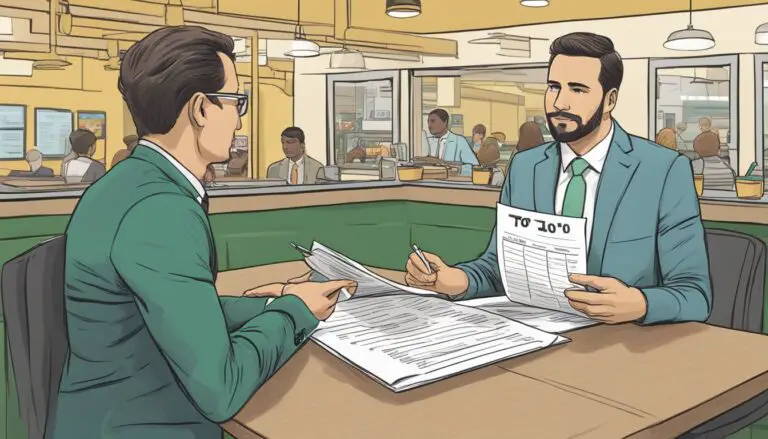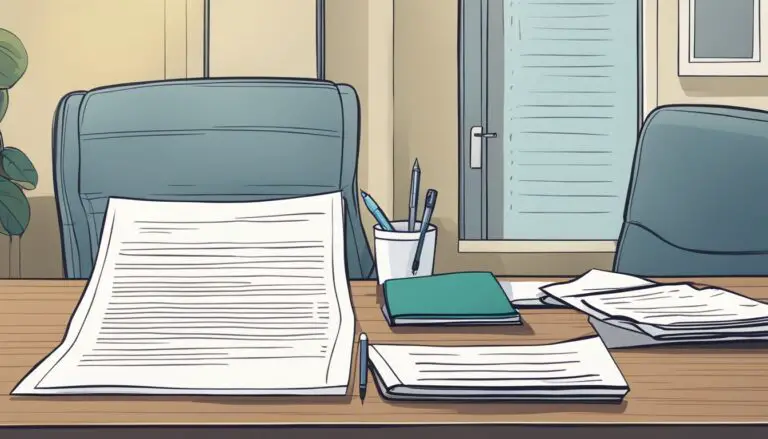110+ Tough Interview Questions and Answers: Navigating the Most Challenging Queries

Navigating a job interview can sometimes feel like a minefield, especially when you’re confronted with tough interview questions. These difficult inquiries are designed to push you beyond your comfort zone and reveal your problem-solving abilities, thinking process, and level of self-awareness.
To stand out as a candidate, preparation is the key. This post covers 110+ tough interview questions and answers to help you to navigate the most challenging Queries.
Understanding the reasoning behind these challenging questions will enable you to craft responses that are both authentic and strategic, highlighting your strengths in a way that resonates with potential employers.

When you’re in the hot seat, the ability to articulate your thoughts clearly and remain composed under pressure is as crucial as your qualifications and experience.
You might encounter questions that probe into past professional challenges, ethical dilemmas, or perplexing work scenarios. These are not simple questions about job responsibilities or your resume; rather, they aim to dissect how you handle adversity and uncertainty in the workplace.
Your answers provide a glimpse into how you would mesh with the company’s culture and contribute to team dynamics.
Each tough interview question is an opportunity to demonstrate your problem-solving skills, communicate your values, and show how you would be an asset to the team. By anticipating these questions and reflecting on your experiences, you’ll be able to emphasize your suitability for the role with confidence and precision.
Remember that your goal is not just to provide what you think is the “right” answer but to offer meaningful insights that showcase your unique qualifications and personality.
Page Contents
- 1 Understanding the Interview Process
- 2 List of 100 Tough Interview Questions
- 3 10 Behavioral Questions to Assess Character (with Sample Answers)
- 4 10 Questions about Your Experience and Background (with Sample Answers)
- 5 10 Most Common Tough Interview Questions (with Sample Answers)
- 6 Wrapping Up the Interview
Understanding the Interview Process
In the context of job interviews, preparation and understanding the interviewer’s perspective are crucial for success. Anticipating tough interview questions and knowing what the interviewer is seeking will set the foundation for a compelling performance.
How to Prepare for Tough Questions?
Research: Start by thoroughly researching the employer. Understanding the company’s culture and recent news can help tailor your responses to align with their values.
- Review Common Questions: Familiarize yourself with common interview questions and why they are asked. Employ concrete strategies like the STAR method (Situation, Task, Action, Result) to structure responses.
- Practice: Conduct mock interviews to practice your responses. Aim to use specific examples that showcase your skills and experiences relevant to the job.
- Self-Reflection: Identify your strengths and weaknesses. Be ready to discuss these candidly while framing them within the context of the role you are applying for.
What the Interviewer is Looking For?
Competence: Your answers should demonstrate you have the skills and experience necessary for the job. Mention specific projects or tasks where you’ve excelled.
- Cultural Fit: Interviewers assess whether you’d thrive within the company’s environment. Discuss your work style and how it aligns with the employer’s culture.
- Problem Solving: Employers value candidates who can address tough situations. Use examples where you overcame challenges through innovative approaches.
- Potential: Besides current skills, the hiring manager is looking to see if you have growth potential. Express your enthusiasm for learning and taking on new responsibilities.
List of 100 Tough Interview Questions

When preparing for an interview, consider how you would answer the following tough questions:
- Can you tell me about yourself?
- Why do you want to work here?
- What is your greatest professional achievement?
- Tell me about a challenge you’ve faced at work and how you dealt with it.
- Describe a decision you made that was unpopular and how you handled implementing it.
- Why should we hire you?
- What’s your greatest weakness?
- Where do you see yourself in five years?
- Why are you leaving your current job?
- Can you explain why there are gaps in your employment history?
- How do you handle stress and pressure?
- What’s your work style?
- How do you prioritize your tasks?
- Can you describe a time when you had to manage a conflict within your team?
- How do you judge success?
- Give an example of when you showed leadership.
- What would your first 30, 60, or 90 days look like in this role?
- Describe a time when you disagreed with your supervisor on a work issue.
- What are your salary requirements?
- Are you overqualified for this job?
- What do you like to do outside of work?
- How do you handle receiving criticism?
- Describe a project that required you to learn new skills.
- Can you talk about a time you failed?
- How would your co-workers describe you?
- What motivates you?
- How would your boss describe you?
- Can you discuss a time when you had to make an unpopular decision?
- Do you prefer to work alone or on a team?
- What are your career goals?
- Can you describe a time when your work was criticized?
- What makes you unique?
- How do you deal with tight deadlines?
- Have you ever dealt with a coworker who wasn’t pulling their weight? How did you handle it?
- How do you ensure a project stays on track?
- What kind of work environments do you prefer?
- How do you measure your own performance?
- Can you give an example of how you’ve worked on a team?
- Have you ever had difficulty working with a manager?
- How do you keep your skill set up-to-date?
- What interests you about this position?
- How do you approach problem-solving?
- Describe a time when you were not satisfied with your work.
- What would you look to accomplish in the first six months on the job?
- Can you provide an example of a time when you went above and beyond for a job?
- What’s a time you exercised leadership and it didn’t go as planned?
- How do you decide what gets top priority when scheduling your time?
- Can you describe a time when you had to give someone difficult feedback?
- How do you deal with conflict in the workplace?
- What type of colleagues do you find it difficult to work with?
- What has been the most challenging situation you’ve faced in your career so far?
- Can you walk me through how you handle projects from start to finish?
- How do you balance work with your personal life?
- What strategies do you use to motivate your team?
- Are you willing to travel or relocate for work?
- Do you consider yourself successful?
- Tell me about a time when you had to rely on written communication to convey your message.
- How do you approach taking on a new task or project you’re not knowledgeable about?
- Can you describe a time when you had to intervene in a situation without guidance?
- How do you deal with situations where you have insufficient resources?
- Discuss a time when your integrity was challenged. How did you handle it?
- What would you do if you were assigned multiple tasks with the same deadline?
- In what ways do you think you can make a contribution to our company?
- How do you handle making a mistake at work?
- What are the most important values you demonstrate as a leader?
- Describe your approach to managing important projects.
- How do the company’s values align with your personal values?
- Do you have experience working in a multi-disciplinary team? How do you approach collaboration?
- What are your aspirations beyond this job?
- How important is work-life balance to you?
- Explain a situation where you took a risk and it didn’t pay off. How did you manage the aftermath?
- How do you set goals for yourself and your team?
- Discuss an example of how you’ve worked on a team-oriented project.
- What tools or techniques do you use to stay organized?
- What kind of management style do you respond to best?
- What are your expectations for this role?
- Do you have any questions for me?
- How do you continue learning on a day-to-day basis?
- Describe how you handle a sudden increase in your workload.
- How do you build relationships with remote team members?
- Tell me about a time you had to learn something quickly.
- What metrics do you use to gauge your own performance?
- Have you ever made a decision that failed? What happened and what did you learn from it?
- Explain how you would handle a situation where you’re asked to do something outside your realm of expertise.
- How do you motivate people?
- Can you discuss a time when you had to adjust to a colleague’s work style to complete a task?
- If hired, what is the one thing you would focus on above all others?
- What strategies would you use to manage a team that is underperforming?
- What steps do you take to form positive, functional working relationships with new colleagues?
- How would you describe your process for delegating work?
- What’s the most interesting project you’ve worked on?
- How have you handled meeting a tight deadline?
- What do you expect to achieve within the first 90 days of this job?
- What is your process for evaluating success?
- How do you approach decision-making when leading a team?
- Describe a complex problem you’ve solved or a complex problem that you’re in the process of solving.
- How would you handle it if your team resisted a new idea or policy you introduced?
- How do you prioritize your clients’ needs?
- Can you tell me about a mistake you made and how you resolved it?
- If you found out your company was doing something against the law, like fraud, what would you do?
10 Behavioral Questions to Assess Character (with Sample Answers)

Behavioral interview questions are designed to evaluate your character traits and how your strengths or weaknesses have played out in past situations.
Here’s a list of questions and suggested answers to help you prepare for what might come your way.
| Question | Suggested Answer |
|---|---|
| 1. Can you describe a challenging situation and how you overcame it? | You should recount an instance where your problem-solving skills came into play. Highlight how you assessed the problem, took action, and learned from the experience. |
| 2. How do you handle making a mistake at work? | Answer with honesty about your capacity to acknowledge errors, take responsibility, and implement solutions to prevent future occurrences. |
| 3. Describe a time you failed. What did you learn? | This is your chance to show perseverance. Talk about a failure and pivot to what insights you gained and how it contributed to your growth. |
| 4. Tell me about a time you showed leadership. | Offer a clear example where you guided a team or project to success and the interpersonal skills you used to do so. |
| 5. How have you handled a disagreement with a colleague? | Explain your conflict resolution strategy—listening to understand, respecting differing opinions, and finding common ground. |
| 6. Provide an example of a goal you didn’t meet and how you handled it. | Discuss setting realistic expectations, assessing what went wrong, and adjusting your strategies for future goals. |
| 7. What’s your biggest weakness, and how do you manage it? | Choose a genuine weakness but focus on how you’re working to mitigate it and your commitment to personal development. |
| 8. How do you manage stress in the workplace? | Convey your stress management techniques such as task prioritization, taking breaks when necessary, and seeking support if needed. |
| 9. When have you gone above and beyond for a project or task? | Use this opportunity to detail an occasion where your extra effort led to a significant improvement or result. |
| 10. How do you approach taking on new responsibilities? | Show you are proactive and eager to grow by discussing your method for learning new things and integrating additional duties. |
These questions aim to reveal your personality traits and how they translate into your behavior in professional settings. By preparing your responses, you can confidently showcase the depth of your character.
10 Questions about Your Experience and Background (with Sample Answers)
Q1: Can you describe your previous job experience? A: In my previous role at XYZ Corp, I spent three years as a Project Manager, overseeing various projects, aligning with teams to meet milestones, and ensuring deliverables were completed on time.
Q2: What projects have you worked on that are most similar to what we do here? A: I’ve worked on several software development projects focused on mobile applications, similar to your company’s product line, where I led cross-functional teams and effectively managed project lifecycles.
Q3: How do your skills align with the job requirements? A: My skills in project management, team collaboration, and time management directly align with the requirements of this role, as listed in the job description.
Q4: What is your most significant professional achievement? A: My most significant achievement was leading a project that resulted in a 30% increase in efficiency for our customer service process, earning the Best Innovation Award at my former company.
Q5: How did you improve a process at your last job? A: I implemented an agile workflow that decreased time-to-market for product features by 20%, enhancing overall productivity.
Q6: Could you provide an example of a challenge you faced and how you overcame it? A: At my last job, I faced a critical deadline amidst team member turnover. I reallocated resources and negotiated deadline extensions where necessary, delivering the project successfully.
Q7: Describe a time when you failed in a professional setting. A: I once underestimated the time needed for a project phase, resulting in delays. I learned vital lessons in project estimation and risk management from this experience.
Q8: How do you prioritize your work in a multitasking environment? A: I prioritize by evaluating the urgency and impact of each task, then sequencing them to maximize efficiency while maintaining flexibility to address urgent issues as they arise.
Q9: How has your background prepared you for this role? A: My background in managing diverse teams and complex projects has equipped me with the necessary skills, like strategic planning and effective communication, essential for this role.
Q10: What made you leave your last job? A: I am seeking an opportunity that offers more growth in leadership responsibilities and aligns with my long-term career goals, which I believe this position offers.
10 Most Common Tough Interview Questions (with Sample Answers)
- Tell me about yourself.
- Focus on relevant professional experience, skills, and goals; keep it concise.
- What is your greatest strength?
- Illustrate with examples how your strengths align with the job requirements.
- What is your greatest weakness?
- Be genuine and include steps you’re taking to improve that weakness.
- Can you describe a challenging project and how you handled it?
- Detail the project and emphasize the problem-solving and leadership skills employed.
- Why did you leave your last job?
- Stay positive and explain your desire for growth and new challenges.
- How do you deal with failure?
- Share an experience and highlight what you learned and how you’ve improved.
- How do you handle conflict with a colleague?
- Provide an example that demonstrates your communication skills and empathy.
- Why should we hire you?
- Relate your unique skills and experiences to the job’s needs and the company’s culture.
- Where do you see yourself in 5 years?
- Showcase your ambition, but ensure it aligns with the role and company’s future.
- Why do you want to work here?
- Do your homework about the company; express your enthusiasm for the company culture and how you can contribute positively.
Wrapping Up the Interview
As the interview comes to a close, the way you handle the final moments can be just as important as your first impression. Use this time to solidify the positive image you’ve created and leave with a strong sense of mutual understanding and respect.
Final Impressions and Thank-You Note
Your final impression is a crucial part of the interview process. Be sure to reaffirm your interest in the role and express appreciation for the opportunity to discuss your qualifications. Mention how the conversation has reinforced your enthusiasm for the company culture and your desire to tackle future challenges mentioned in the job description.
- Team Dynamics: Discuss briefly how you see yourself fitting in with the team and contributing to projects.
- Company Culture: Align your closing statements with the company’s values.
After the interview, follow up with a thank you note within 24 hours. This not only shows your appreciation but also your attention to detail and dedication. In your note:
- Express gratitude: Sincerely thank the interviewer for their time.
- Reinforce interest: Clearly reiterate your interest in the position.
- Recap strengths: Briefly highlight how your skills align with the job.
| Thank You Note Components | Importance |
|---|---|
| Gratitude | Establishes warmth and politeness |
| Interest | Demonstrates enthusiasm |
| Alignment | Underscores your fit for the role |
Keep your message concise and positive, reflecting an attitude of gratitude, trust, and honesty. Make sure your preparation shines through by customizing your note to reflect key points from the interview. Moreover, maintain your professionalism throughout, as this final touchpoint can reinforce the confident and knowledgeable persona you’ve presented.







